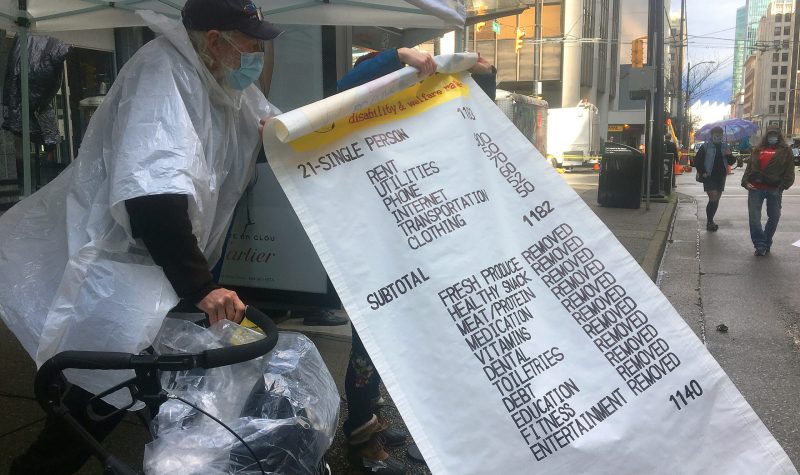By David P. Ball
---
The provincial government's partial reversal of cuts to disability assistance top-ups didn't dampen the turnout at a rally this week demanding an end to rates they said keep people with disabilities far below the poverty line.
Dozens of people took over the intersection of Howe and Dunsmuir streets, near a provincial government office, on Thursday afternoon, unfurling a giant "No Funds" novelty groceries receipt to show how difficult it is to make ends meet on assistance even after the government's $175 permanent raise to rates announced just a day before.
The event was billed as an anti-poverty "parade" and featured a three-piece band with standup bass, saxophone and electric guitar, as well as signs calling for a significant increase to disability assistance as well as calling attention to unaffordable rents, high medical and prescription costs, and inaccessible service barriers accessing support.
Provincial poverty reduction minister Nicholas Simons touted the $175 monthly top-up as the largest single raise to rates in B.C. history, and said the pandemic's $300 supplement was never meant to be permanent but to help people through a very difficult year, but that the permanent raise would help lift people out of poverty combined with other provincial measures, part of the B.C. poverty reduction strategy.
But advocates decried the ongoing low rates, saying it was "unacceptable" and a pattern of "neglect" of people who need help through no fault of their own, and whose health conditions often worsen because of the lack of help and difficult financial choices of living in poverty.


